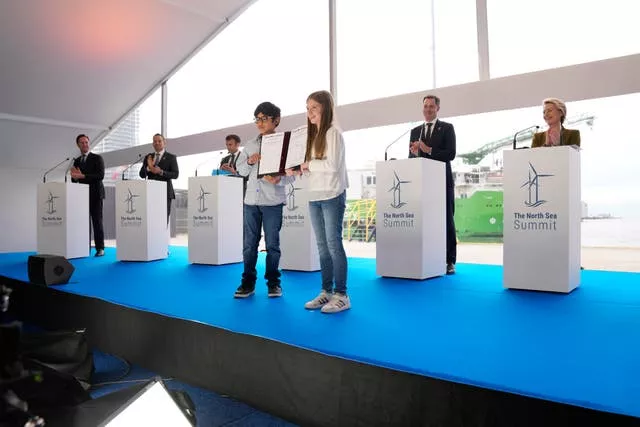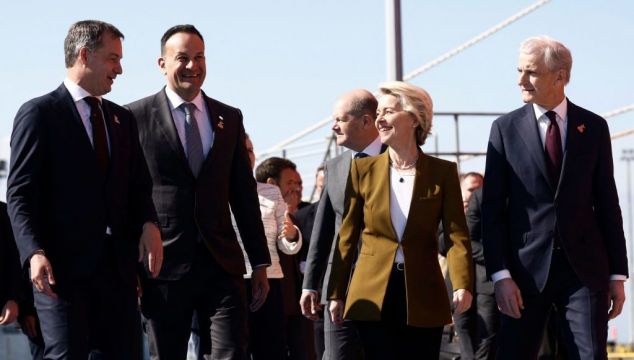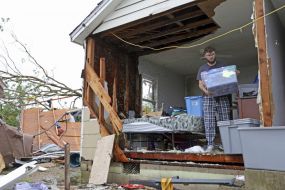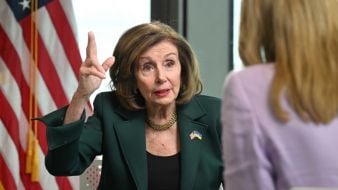Ireland has signed up to ambitious goals to harness offshore wind energy from the North Seas including the Irish Sea, Celtic Sea and Atlantic Ocean.
Taoiseach Leo Varadkar joined leaders of six other EU countries on Monday along with Norway and EU chief Ursula von der Leyen at the North Sea Summit in Ostend, Belgium. They supported the Ostend Declaration which aims to accelerate the development of offshore wind in the North Seas.
Speaking this afternoon, the Taoiseach said the attendance of government leaders and companies at the summit shows a shared commitment to accelerate the transition to a green energy future.
He said they are looking to harness what he called the “immense potential of offshore renewables”.
Belgian Prime Minister and summit host Alexander De Croo said: “The offshore windmills, but also the cables and the pipes on the ground, are prone to sabotage or espionage,”

Energy independence was also high on the leaders’ priorities.
“We’ve seen over the past months what the impact is if you are too dependent on outsiders for the supply of energy,” Mr De Croo said, referring to the energy supply crunch over the winter when EU nations decided to start sidestepping Russian fossil fuels following the Kremlin’s war on Ukraine.
“We show here by working together that we can make our electricity greener and more independent.”
Dutch Prime Minister Mark Rutte said the group of Western countries must make sure Russian President Vladimir Putin “no longer has the means to exert pressure on us by turning off the gas tap”.
“And producing clean energy is the best way to achieve this,” he added.
The summit in Belgium’s North Sea port of Ostend is the second one to address the ever more pressing issue, and has expanded to take in nine nations – Belgium, the Netherlands, Luxembourg, France, Germany, Britain, Ireland, Norway and Denmark.
To highlight the scale of the challenge, the nine countries now want to more than quadruple current production to 120 gigawatts by the end of the decade, and move to 300 gigawatts by 2050.

Even though German Chancellor Olaf Scholz described the North Sea as “the energy powerhouse right before our front door” that would help Europe become climate neutral, he warned that this will require countries to “think bigger” and strengthen their supply chains.
To underscore their commitments, the Netherlands, Britain, Norway and the European Union all announced new projects to boost the production of such green energy and move towards greater strategic independence.
The European Union has committed that 42.5 per cent of total energy consumption should come from renewables by 2030, on the way to becoming a climate neutral bloc by 2050.
The meeting was also looking beyond the windmills themselves, to the ability of the power grids of offshore wind farms to bring the energy to shore and into the continent’s industrial centres – sometimes thousands of miles away.
Mr Scholz stressed that Europe’s power grids, which he described as its “lifelines”, also need to be expanded at the same pace as the wind farms so that electricity produced in the North Sea can reach industrial regions in southern Germany and elsewhere.







